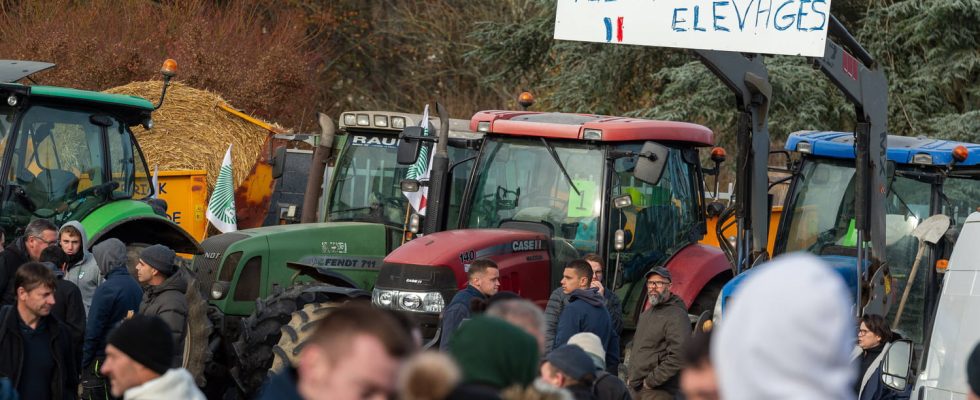The relaxation of numerous national and European standards is one of the main demands of angry operators. Here are some rules in the viewfinder.
“Asphyxiating” and “counterproductive” standards are what many farmers who have been mobilized in the country for several days are denouncing. Gatherings, road blockages… in the midst of these mobilizations, the subject of too many, too restrictive and sometimes contradictory rules imposed on agriculture both at the national level and at the European level, is omnipresent. Here are the main standards in the crosshairs of the protesters.
4% fallow, a new rule that does not pass
French agriculture is largely regulated by the European Common Agricultural Policy (CAP), an agreement renewed since treaty of Rome 1957. However, “all the reforms of the CAP since 1992 have been made with the objective of adding environmental constraints”, points out Nicole Ouvrard, agricultural engineer and deputy director of the Agra agency, to the Parisian. The latest reform of the CAP, signed in 2023, further strengthened the trend by making a certain number of subsidies subject to compliance with new ecological rules.
Farmers must, for example, respect a certain diversity of crops on their land, maintain a sufficient proportion of permanent meadows, or even cover the soil in winter. One constraint, in particular, arouses their ire: they are now obliged to permanently keep 4% of their soil in fallow. Fallow land is an area left without cultivation in order to ensure the renewal of the land. However, these areas, in addition to requiring maintenance, represent a loss of income for operators.
The new French agricultural orientation law postponed
In addition, the arrival of a new European text, the Green Pact, is making farmers tremble. This pact, still under discussion, aims in particular to halve the use of pesticides and to considerably increase the areas dedicated to organic farming. New constraints which alarm operators.
Especially since the latter are also dependent on purely French, or even local, regulations, for example regarding the irrigation of their land. The Minister of Agriculture, Marc Fesneau, was due to present a new national agriculture orientation law in the coming weeks. This prospect has strengthened the ranks of protesters, who fear that new French standards will further complicate their activity. Faced with the threat of an explosion of anger, Marc Fesneau decided to postpone his presentation “for a few weeks”, the time to submit his text to “simplifications”.
